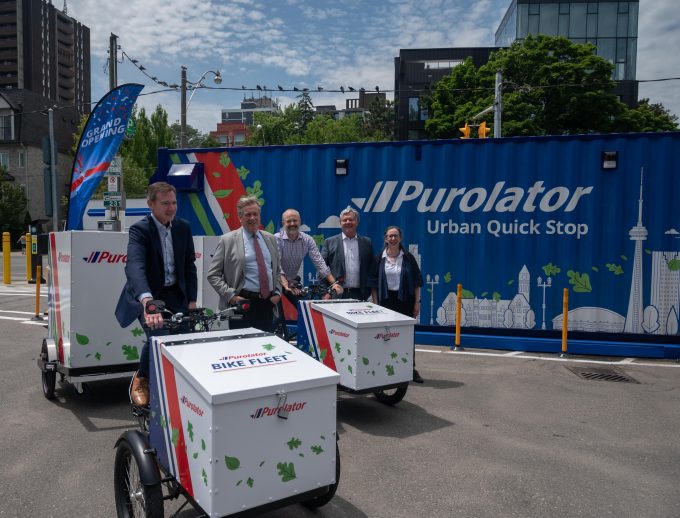DHL Global Forwarding misses profit expectations, despite strong Q4
DHL Global Forwarding this week revealed that last year’s performance by the division had been ...

E-commerce fulfilment has brought challenges to urban administrations worldwide, as they try to mitigate its impact on local communities.
Some are working with parcel carriers, while others banish them from central areas.
Purolator Courier, Canada’s largest parcel and express carrier, is experimenting with a new distribution concept ...

Comment on this article